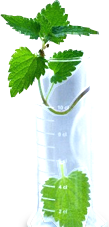



Author(s): Imran Bhat, Farooq Ahmad Ganie*, Buch Velayat, Asif Maqbool, Ayaz Farooqi
This study was designed to determine whether ropivacane decreases the severity of acute post-thoracotomy pain scores and whether ropivacane decreases the dosage and need of rescue analgesics in comparison with placebo. In our study Patients were randomly assigned in a blinded fashion to receive either 0.5 % ropivacaine or placebo. Between March 2012 and march 2013, 63 patients underwent thoracotomy in our hospital. 53 subjects were randomized to receive either 0.5 % ropivacaine (n = 28) or saline (n = 25). Pain scores (at rest, during deep breathing, and coughing), intra- operative opioid requirement, requirement of rescue analgesics and adverse events were assessed for 12 hours. Mean opioid (morphine) requirement in the ropivacaine group was 5.786 mg (SD 1.272), while as the mean requirement of morphine in the saline group was 6.0 mg (SD 1.299), the difference in the intraoperative opioid requirement was statistically insignificant (p value = 0.5472). Mean paracetamol requirement at 6 hours post-procedure was 0.18 g (SD 0.39) in the ropivacaine group and 0.52 g (SD 0.51) in the saline group, the difference between the groups was statistically highly significant (p value = 0.0081). Our study concluded that ropivacaine 0.5 % improves pain scores. It is also concluded that ropivacaine 0.5 % in comparison to placebo decreases the requirement and dosage of rescue analgesics.